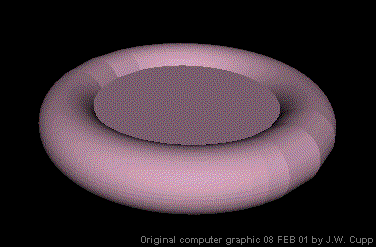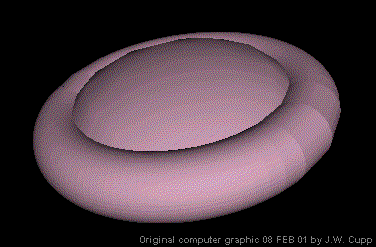
For information about blood in general, read this page first.
My mother has been diagnosed with Spherocytosis, which is also called Spherocytic Anemia. I learned that a fuller technical name for this condition is Hereditary Spherocytic Hemolytic Anemia, and that is an inherited syndrome in which the spleen removes red blood cells (due to their spheroid shape) leading to anemia. Since this condition in inherited I must face the possibility that I am at increased risk for having the condition as well.
When, despite having taken multivitamins with iron on a regular basis I was found to have low hemoglobin, I thought I had better check this out a little more thoroughly. This page presents the results of what I have learned.
First, for a general discussion of what "Spherocytes" are and how they are different from normal red blood cells ("Erythrocytes") check here. Then, for a fuller discussion of Hereditary Spherocytic Hemolytic Anemia, read this page.
For a quick overview, a normal Erythrocyte looks something like this:


For an artist's rendition of what this might look like flowing through your blood vessels, consider this Virtual Reality model.
(Please note that your browser must have a VRML player installed as a plugin to view this page. If you do not have one, you can download Cosmo player for free, but this must be done and installed before viewing the model.)
Another form of anemia is pernicious anemia, which concerns the body's inability to absorb vitamin B-12. (B-12 is critical to the absorption of iron from dietary intake.) As far as I am aware, there is no connection between pernicious anemia and hereditary spherocytic hemolytic anemia, but the combination of both of them has an enormous impact on the body's red blood cell supply. Some additional information is here.
Other sources of information are:
Note: I cannot possibly keep all of these links current. If you find one that doesn't work, I'd appreciate you .